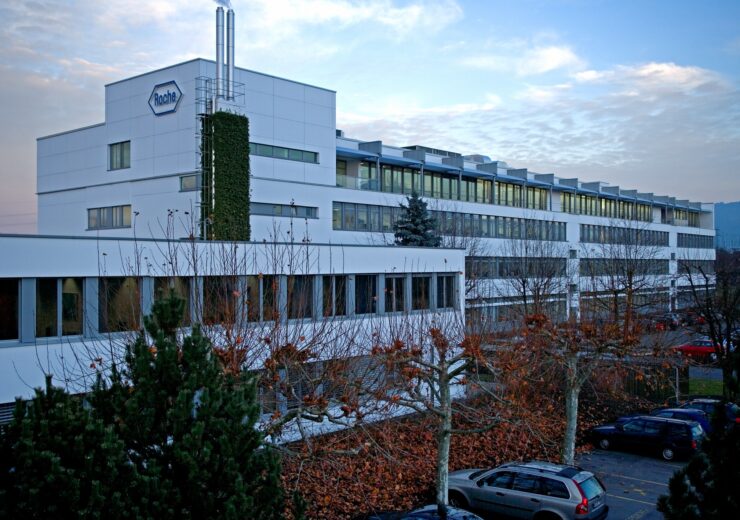Columvi (glofitamab-gxbm) is a CD20xCD3 T-cell-engaging bispecific antibody designed to target CD3 on the surface of T-cells and CD20 on the surface of B-cells and is indicated for adult patients with relapsed or refractory (R/R) DLBCL

FDA approves Roche’s Columvi to treat DLBCL. (Credit: F. Hoffmann-La Roche Ltd)
Swiss healthcare company Roche has received the US Food and Drug Administration (FDA) approval for its antibody therapy Columvi to treat a type of diffuse large B-cell lymphoma (DLBCL).
Columvi (glofitamab-gxbm) is a CD20xCD3 T-cell-engaging bispecific antibody designed to target CD3 on the surface of T-cells and CD20 on the surface of B-cells.
It is indicated for adult patients with relapsed or refractory (R/R) DLBCL, or large B-cell lymphoma (LBCL) due to follicular lymphoma, after systemic therapy.
The FDA approved the drug under the accelerated approval process, with a continued approval contingent upon verification of clinical benefit in a confirmatory trial.
Columvi, a part of Roche’s CD20xCD3 T-cell-engaging bispecific antibody clinical development programme, is planned to be commercialised in the US, within a few weeks.
Roche global product development head and chief medical officer Levi Garraway said: “People with diffuse large B-cell lymphoma who have gone through multiple lines of therapy have a poor prognosis and desperately need additional treatment options.
“As an off-the-shelf, fixed-duration treatment providing durable response rates, we believe Columvi could change the way this aggressive lymphoma is treated, reinforcing our dedication to bringing innovative treatment options to people with critical unmet needs.”
The US FDA approved Columvi based on positive results from the Phase 1/2 NP30179 study in 132 patients with DLBCL who had relapsed or were refractory to prior therapies.
About one-third (30%) of the study participants had received prior CAR T-cell therapy, and 83% were refractory to their most recent therapy.
In the study, patients treated with Columvi achieved durable remission, with 56% of patients achieving overall response (OR) and 43% of patients achieving complete response (CR).
The OR rate is the combination of CR, the disappearance of all signs and symptoms of cancer, and partial response rate, a decrease in the amount of cancer in the body.
Cytokine release syndrome, musculoskeletal pain, fatigue, and rash, are the most common adverse events (AEs) in the Phase 1/2 NP30179 study, said the Swiss drugmaker.
Columvi Phase 2/3 NP30179 study investigator Krish Patel said: “Patients with relapsed or refractory diffuse large B-cell lymphoma may experience rapid progression of their cancer and often urgently need an effective treatment option that can be administered without delay.
“Experience from clinical trials demonstrates that Columvi can provide patients with relapsed or refractory diffuse large B-cell lymphoma a chance for complete remission with a fixed duration immunotherapy and that such remissions can potentially be sustained after the end of their treatment.”
